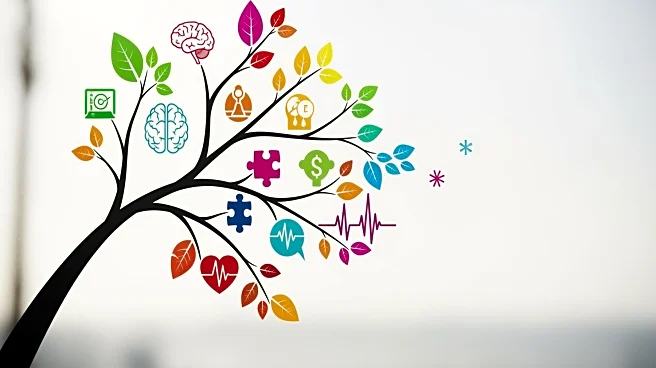What's Happening?
IShowSpeed, a popular internet personality with over 44.9 million YouTube subscribers, has expressed frustration over AI-generated deepfakes created using the Sora 2 app. These deepfakes depict him in various
scenarios, including kissing fans, racing animals, and coming out as gay, none of which he has done. The streamer, whose real name is Darren Jason Watkins Jr., has been vocal about the misleading nature of these videos, which have been created without his consent. During a livestream, he expressed his anger and the difficulty of manually deleting each video. The Sora 2 app, developed by OpenAI, allows users to create videos using the likeness of celebrities who opt in, a decision IShowSpeed now regrets.
Why It's Important?
The controversy surrounding Sora 2 deepfakes highlights significant concerns about the ethical use of AI technology, particularly in creating content that can mislead audiences and potentially harm reputations. For public figures like IShowSpeed, these deepfakes can lead to misinformation and personal distress. The situation underscores the need for stricter regulations and controls over AI-generated content to protect individuals' likenesses and prevent unauthorized use. The broader implications affect not only celebrities but also the general public, as the technology becomes more accessible and potentially misused.
What's Next?
OpenAI has acknowledged the issues with Sora 2 and plans to implement more stringent controls over the use of likenesses and characters. This includes giving rightsholders more control over how their likenesses and characters are used. The company is also facing pressure from various stakeholders, including the Japanese government and major entertainment companies, to prevent copyright infringement. As the debate over AI-generated content continues, there may be increased calls for legal frameworks to address these challenges and protect individuals' rights.
Beyond the Headlines
The rise of AI-generated deepfakes raises ethical questions about consent and the potential for technology to create realistic yet false representations of individuals. This development could lead to a cultural shift in how digital content is perceived and trusted. As AI technology advances, society may need to adapt to new norms regarding digital identity and authenticity, potentially influencing legal standards and public policy.










